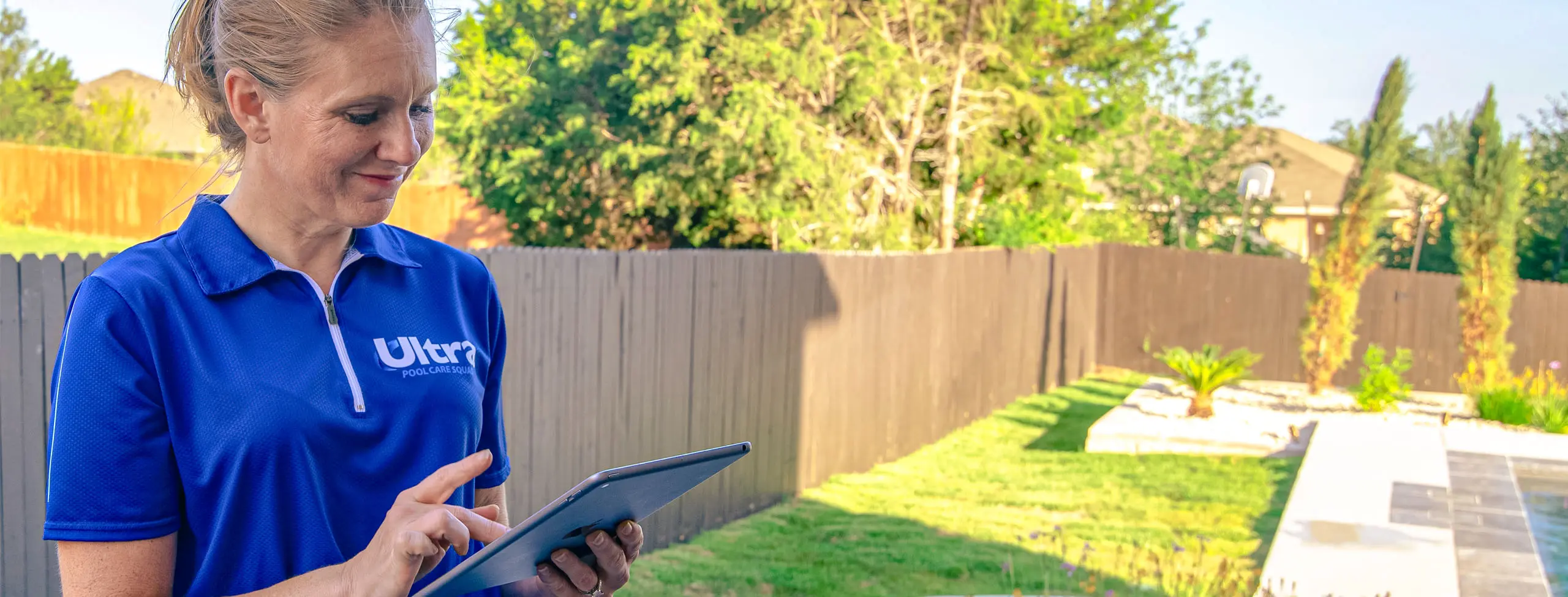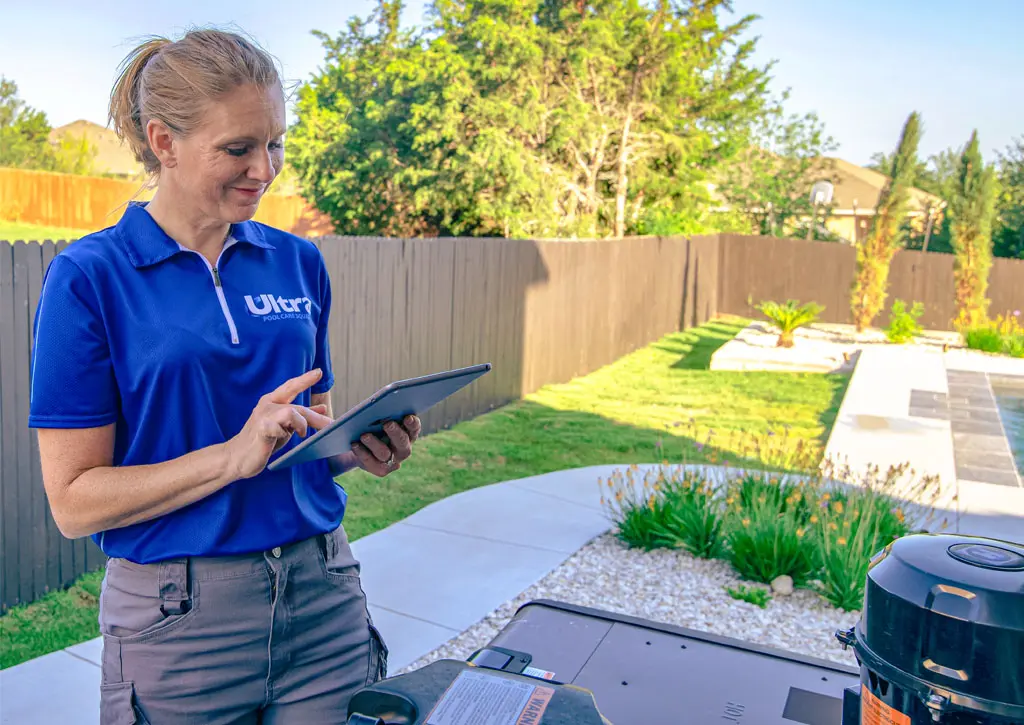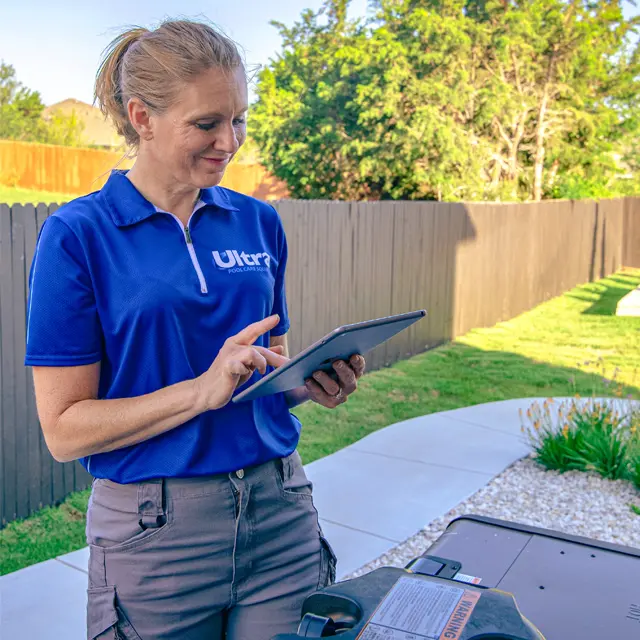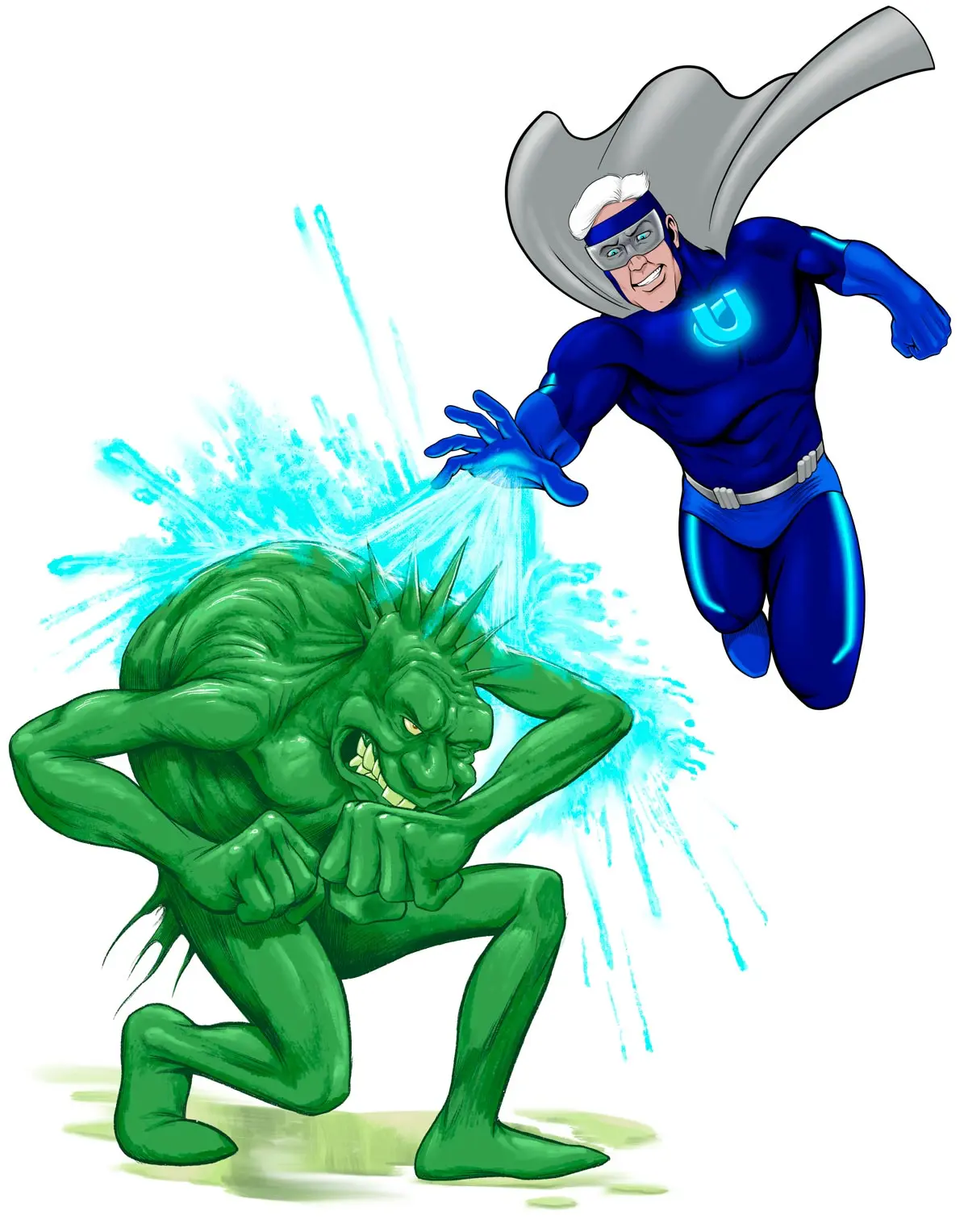


Knowledge
Keeping pools healthy and safe.
Trust us and we’ll prove you right. Our commitment to you is our highest priority. Honesty, reliability, and trust are the cornerstones of our business. With more than 20 years of experience in the swimming pool industry, our trusted experts understand it is not just about cleaning your pool, but also about consistently doing the little things well.

What is the Science behind Properly Balanced Water Chemistry?
Just when you thought you could leave your high school chemistry class behind, we had to bring up this topic. Fear not! Even if you slumbered during class, we can bring you up to sufficient speed to understand what your swimming pool water needs to keep it clean, clear, and healthy. No periodic tables required. If you want to keep your swimming pool water clear and clean, you just need to keep its chemistry balanced. If the chemistry is off, no amount of vacuuming, scrubbing, or filtering is going to do the trick.
High pH + Low Chlorine = Algae in Bloom
Keeping your swimming pool free of algae blooms is a dance between chemical balance, sanitizer levels, regular water filtration, general cleaning of the swimming pool area and regular brushing of the pool walls.
Always present in pools – even in super clean ones – green, yellow and blue-green algae lie in wait for the perfect opportunity to bloom. When the chlorine levels drop and the pH rise, or if the pump and filter are not up to snuff, it is “game on” for algae.
Algae multiplies quickly, especially on warm, sunny days. Photosynthesis is what allows it to grow. Algae can grow in the shade, but it really accelerates the growth process in the sun. And algae has a smorgasbord of food available to survive in and around your pool. From specks of dust to any contaminant that finds its way into contact with algae, it’s a veritable feed bag.
The good news? You can get rid of it. Just don’t overlook it for an appreciable amount of time, or you will be spending an appreciable amount of money showing it the door. Before it gets out of control, you need to put it in its place. Using prevention methods, you can also ensure it doesn’t return.
What Happens when Algae goes Wack

Grimey Organic Waste Buildup
Pools acquire scummy grime lines when organic waste builds up in the water; a collection of residue left from oils, cosmetics, hair products, suntan lotions, dead skin cells, sweat, soil, insect and plant fragments.
Your pool’s skimmer will remove leaves and insects and other large debris, but the finer matter and particulates will attach to the top edge of the pool appearing as a black water line, and will eventually settle at the bottom of the pool forming a layer of sediment.
Grime and debris can me removed with an enzyme chemical, which basically eats the grime. The enzyme is also commonly added to pools weekly as a preventative measure, though doing so requires more frequent filter cleaning.
Pool pumps, filters and vacuums aid in keeping the bottom of the pool clean from sediment build up. This equipment must be regularly rinsed and cleaned ensuring the whole system remains effective in keeping pools safe, clean and ready for fun.
Contributors of Organic Waste Buildup

Just enough Calcium… but not too much!
Calcium hardness is the measure of how soft or hard your swimming pool water is. It also is a measure of how much dissolved calcium and magnesium exists in your pool. Calcium goes hand-in-hand with the water’s pH and total alkalinity, so it is imperative that the calcium hardness is balanced to prevent your pool water from scaling or becoming corrosive.
Calcium occurs naturally in pools and it is a necessary component of a healthy swimming pool. Too much calcium is usually caused by improper pH, fluctuating temperatures and natural evaporation. Excess calcium can be irritating to swimmers’ eyes and skin and leads to a scaly white buildup on surfaces around the pool.
If the swimming pool is lacking in calcium, the water will try to balance itself by extracting calcium from plaster pool walls in order to obtain the mineral it needs. Vinyl or fiberglass pools are still not safe as the calcium-deprived water will strike metal fittings and heat exchangers, too. This will lead to corrosion that can destroy those fittings and lead to small leaks and unsightly rust stains on the surfaces of your pool and in your pool equipment.
So, it is vitally important to maintain just the right amount of calcium levels in your swimming pool. Just enough, but not too much. The right balance for calcium content in a pool should be in the range of 100-400 ppm. If your pool is lacking in calcium, a pool water hardness increaser can be added. If your pool has excess calcium, then a sequestering agent can be added.
Issues Brought On by Calcium Imbalances
Chlorine vs Saltwater Generators
Saltwater Pools are becoming increasingly popular due to their low-maintenance and low-chemical aspects. While a saltwater pool is not like ocean water, it also does not mean that no chlorine is present. Salt water pools are simply fresh water that has had salt added at a lower level than what you would encounter in ocean water
So which is the best method for maintaining properly balanced water? When it comes to the debate, it mostly boils down to individual perspective. What would you rather invest more of: time or money?
Chlorine Pools
Chlorine pools require weekly additions of Chlorine in stick, liquid or tablet form and attentive monitoring. A balancing agent is also added to mitigate adverse effects.
Salt Water Pools
Saltwater pools rely on electrolysis to create natural chlorine. Proper water balance is maintained as the generator converts the salt into enough chlorine to clean the pool.